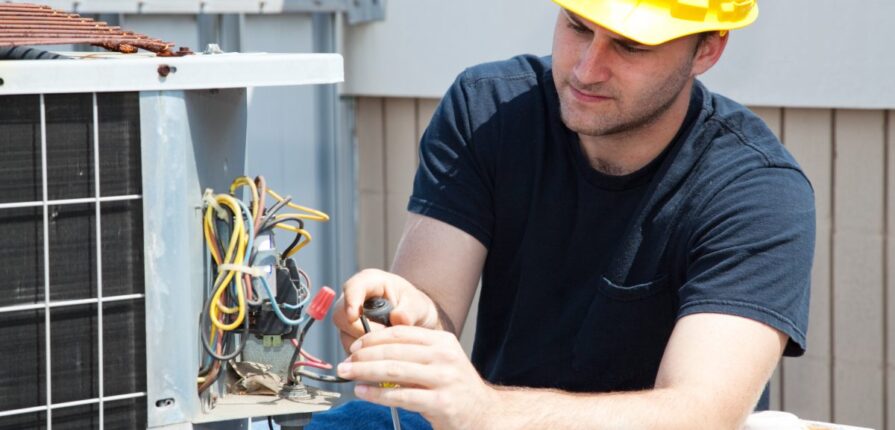DIY HVAC Repairs
Whenever you use an HVAC system for your indoor comfort needs, you’re relying on advanced technology that has several components and various electrical and mechanical parts. Whether you want to install a new unit or repair existing equipment, you should know that going the DIY route is never a good idea.
If you’re having problems with your heating and cooling systems, don’t try to attempt DIY repairs. Turn to a professional HVAC service and technicians with training and experience dealing with the intricacies of HVAC equipment.
Wrong Directions
Watching an instructional video or TV show, or reading about how to do HVAC repairs doesn’t qualify you to service your HVAC systems. One of the major ways that this can go south is when you take the wrong advice and follow the wrong directions. In fact, every single air conditioner, heater, and thermostat is completely unique. Even the same brand, like Amana or Trane, produces equipment in various different configurations. It can be extremely difficult to perform diagnostics and repairs that are precise and unique to your specific machinery.

The top risks associated with DIY HVAC repairs.
Safety hazards — HVAC systems utilize large amounts of electricity and present a greater risk of electric shock to untrained people. Accidentally shorting the wires can damage your home’s electrical system. Which could result in a fire or damage to other electrical components or electronic equipment in the house. Leaking refrigerant also has to be handled carefully. Accidentally inhaling refrigerant vapors can result in sudden oxygen deprivation.
Higher costs — DIY supposed to help you save on money, but DIY air conditioning repair may actually cost you more than simply working with a professional. There’s also no guarantee that DIY repairs will fix the problem. It’s not uncommon for HVAC technicians to be hired to fix DIY repair mistakes.
It may be Illegal — In fact, the Environmental Protection Agency (EPA) has strict laws about handling systems that utilize refrigerants. This includes residential and commercial refrigerators and HVAC systems. In many areas, only certified professionals allowed to perform repairs, which would make DIY HVAC repairs illegal. If you’re unsure if this law applies to your area, it’s better to play it safe and hire a local HVAC technician.
Voided warranty — Most of today’s HVAC warranties count unauthorized modifications as an exception. This means you could void your warranty coverage if you perform DIY repairs. Even substituting small components or using a different type of refrigerant can count as unauthorized modification. If your HVAC system is still under warranty, simply call your HVAC contractor.


